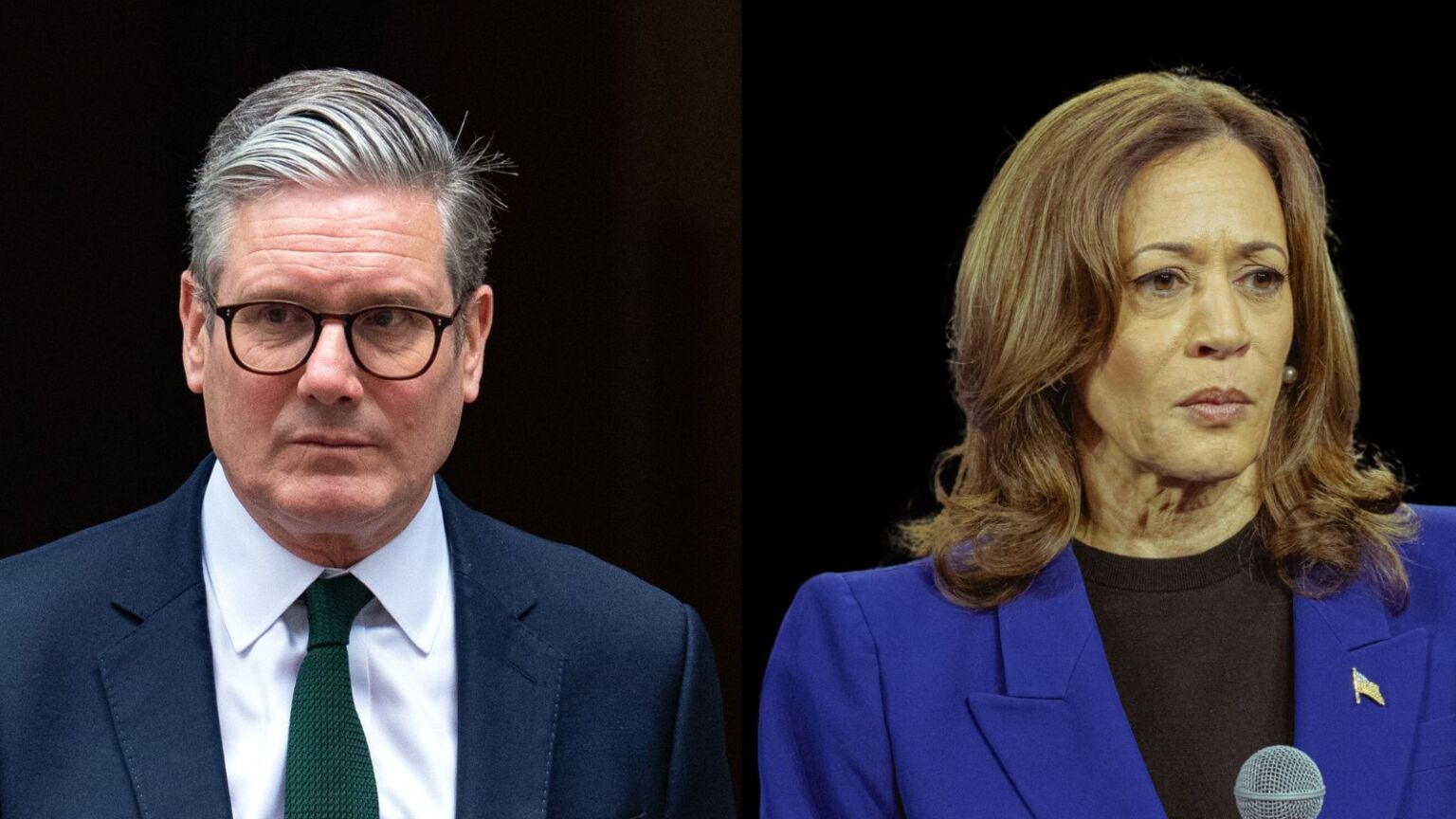The dangerous emptiness of the modern politician
From Kamala Harris to Keir Starmer, politicians are all vibes, no substance.

Want to read spiked ad-free? Become a spiked supporter.
The summer holidays might be over for the rest of us, but for Ed Miliband, they apparently never began. Throughout August, Labour’s secretary of state for energy security was keen to share regular updates on X about where he was and what he was doing.
This should have been reassuring. Especially as one in four households is having to consider going without heating this winter due to spiralling prices. As we approach the colder months, charities representing vulnerable, elderly people are warning about the dangers of slashing their winter fuel payments.
So, was Miliband working away to secure the UK’s energy supplies? Was he lowering prices and mitigating against the imminent danger for struggling pensioners? Apparently not. Last month, he announced on X that he had flown to Brazil to ‘tackle the climate crisis’.
Miliband’s constituents in Doncaster – one of the poorest places in the UK – were understandably frustrated to learn that he was busy ‘seeing how we can work together’ with politicians in Sao Paulo, rather than addressing the issues that affect them. But avoiding immediate challenges with soothing niceties about global cooperation is typical of today’s politics. Governments would rather grandstand than govern. Politicians forsake policy for pantomime.
This should be no surprise coming from Labour. Its General Election campaign lacked anything around which to campaign. Despite facing some of the most severe challenges of any incoming government for years, Keir Starmer decided to say as little as possible about concrete proposals. Instead, he treated the campaign as if he were carrying a ‘ming vase’ – a precious artefact that would be shattered if he let people know what they were voting for.
Unfortunately for Starmer, offering such proposals is what politics is supposed to be all about. A politician has one job – to argue a case for a policy and be held to account after implementing it. A politician avoiding policy proposals is like a chef avoiding food or a painter avoiding paint. Yet governments seem increasingly to avoid actually governing. And they are somehow getting away with it.
Politicians now prefer to symbolise a particular vibe. To appear to be ‘doing something’. To embody the right energy. Hence the vacuous slogans that have so long characterised political discourse – ‘better’, ‘working together’, ‘forward’, ‘believing’. ‘Better’ how? ‘Believing’ in what, exactly? Starmer’s manifesto at the last election was entitled ‘Change’ – something worth fighting for only if you know what that change is.
There are clear parallels between Starmer in the UK and Kamala Harris, the Democratic presidential nominee in the US. It’s no secret that Harris plans to borrow Starmer’s approach for the US election in November. Top Labour strategist Morgan McSweeney even flew to the Democratic National Convention last month. There, the potential next leader of the free world received a rapturous reception before she even outlined any real policies.
The vibes-based approach to politics grants licence to politicians to govern arbitrarily. Take Starmer’s approach to law and order. Labour’s Change manifesto was low on details here, save for a few vague pledges about neighbourhood policing and ‘Young Futures hubs’. Then Starmer appointed the unelected James Timpson, chair of the Prison Reform Trust, as prisons minister. This was described as a ‘groundbreaking’ and ‘significant sea change in how we deal with crime and offenders’, due to Timpson’s concern for improving prison conditions and exploring alternative means of rehabilitation. Noble ideals, indeed. But ideals that hadn’t been voiced during the election. When things took a dramatic turn after the riots earlier this summer, Starmer then pivoted to policies that neither his manifesto nor his appointment of Timpson had even hinted at – with an Orwellian crackdown on free speech.
There are many reasons that governments have given up on governing. For one thing, identity politics means that a politician’s identity now seems to matter more than their policy preferences. More people know that Starmer’s father was a toolmaker than what he plans to do about education or the economy.
Identity politics is also intrinsically anti-historical. It treats the past as ‘problematic’ for the present. Those subscribing to it no longer try to connect the present to the future by outlining what they intend to happen. All this is captured by Harris’s gloriously meaningless catchphrase – that we might ‘see what can be unburdened by what has been’. We now live in a time when democratically elected politicians are unburdened from being held to account by the electorate for their electoral promises.
It’s time for voters to start demanding specifics and to stop accepting platitudes. We must judge legislators on the content of their achievements, not the energy of their vibe. If your MP speaks more about going on global crusades than meeting the needs of his or her constituents, then be sure to vote for someone else next time.
Jacob Phillips is an academic living in London. Follow him on X: @Counteredlogos
Picture by: Getty.
Who funds spiked? You do
We are funded by you. And in this era of cancel culture and advertiser boycotts, we rely on your donations more than ever. Seventy per cent of our revenue comes from our readers’ donations – the vast majority giving just £5 per month. If you make a regular donation – of £5 a month or £50 a year – you can become a and enjoy:
–Ad-free reading
–Exclusive events
–Access to our comments section
It’s the best way to keep spiked going – and growing. Thank you!









Comments
Want to join the conversation?
Only spiked supporters and patrons, who donate regularly to us, can comment on our articles.